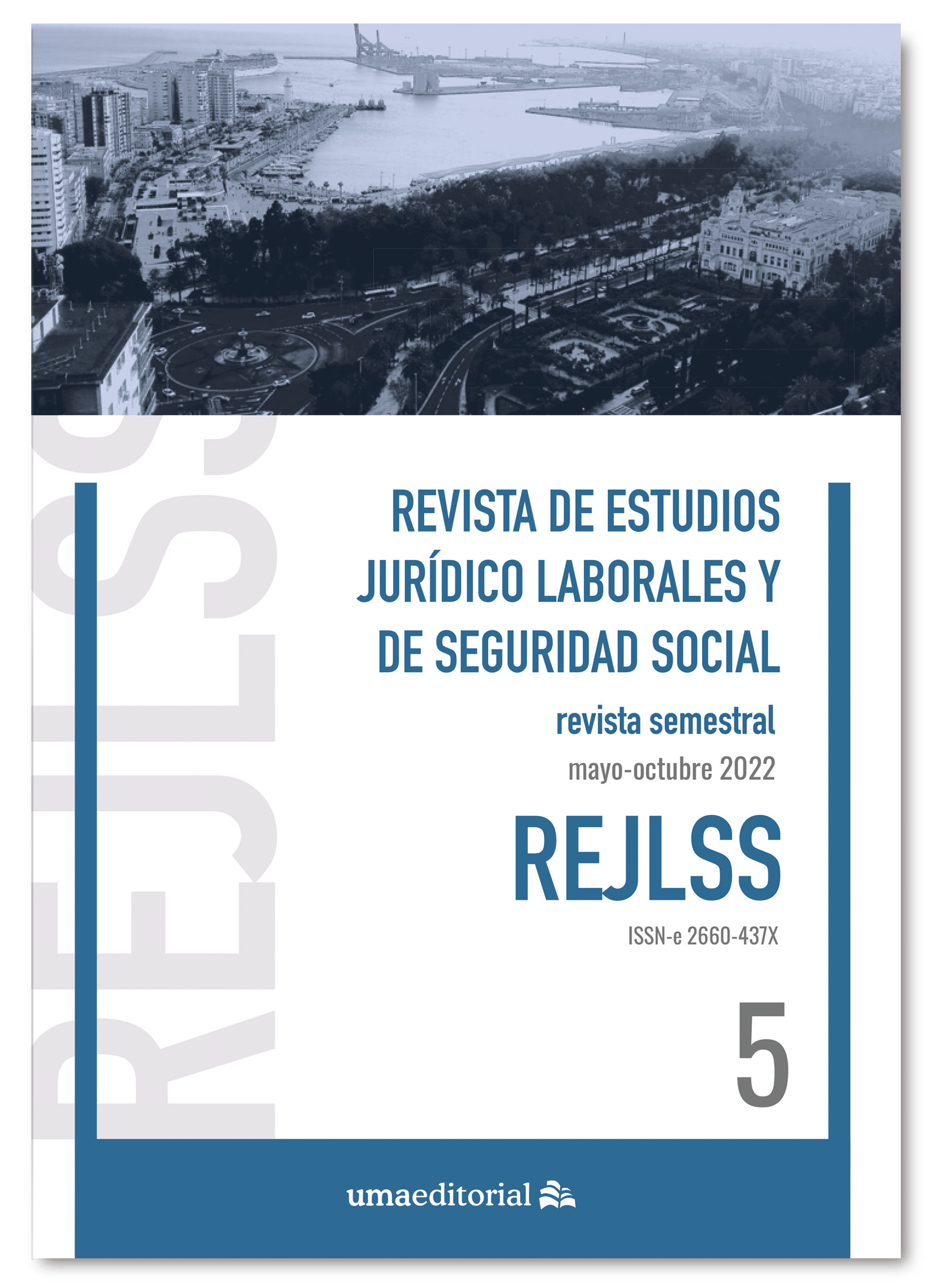Video surveillance in the workplace: the control power of the businessman versus the workers’ right to data protection
DOI:
https://doi.org/10.24310/rejlss.vi5.14679Keywords:
video surveillance, duty of prior information, consent, power of control, fundamental rights, data protectionAbstract
The STS 285/2022 of March 30 resolves a controversial issue such as the installation of video surveillance systems in the workplace. In this case, the company installed a surveillance system at different points of sale in order to reduce and avoid losses in the trade as well as improve service. However, despite the fact that it only communicated the installation to the legal representation of the workers, there were informative signs that warned of its existence both to the clients and to the workers who provided their services in this establishment. After assessing the proven facts, TS admitted the video surveillance evidence provided by the company to justify the disciplinary dismissal of the worker following the constitutional and jurisprudential doctrine configured in this matter.
Downloads
Metrics
Publication Facts
Reviewer profiles N/A
Author statements
Indexed in
-
—
- Academic society
- N/A
- Publisher
- Universidad de Málaga. UMA Editorial
References
González Rodríguez, R., “Los derechos fundamentales como límite difuso al control tecnológico en el ámbito laboral: luces y sombras de la primera regulación específica sobre la materia”, Revista de Trabajo y Seguridad Social-CEF, núm. 463, 2021.
Gude Fernández, A., “La videovigilancia en el ámbito laboral y el derecho a la intimidad”, Revista de Derecho Constitucional, núm. 20, 2015.
Jiménez-Castellanos Ballesteros, I., “Videovigilancia laboral y derecho fundamental a la protección de datos”, Temas laborales: Revista andaluza de trabajo y bienestar social, núm. 136, 2017.
Molina Navarrete, C., “El poder empresarial de control digital: ¿nueva doctrina del TEDH o mayor rigor aplicativo de la precedente?”, Revista IusLabor, núm. 3, 2017.
Molina Navarrete, C., “El derecho a la vida privada del trabajador en el Tribunal Europeo de Derechos Humanos: ¿Diálogo o conflicto con la jurisprudencia nacional?”, Revista Temas Laborales, núm. 148, 2018.
Segoviano Astaburuaga, M. L., “El difícil equilibrio entre el poder de dirección del empresario y los derechos fundamentales de los trabajadores”, Revista jurídica de Castilla y León, núm. 2, 2004.
Tolodí Signes, A., “Control tecnológico: una propuesta de aplicación del triple juicio de proporcionalidad conforme a la normativa europea de protección de datos”, en AA.VV., Digitalización, Recuperación y Reformas Laborales – XXXIII Congreso Anual de la Asociación Española de Derecho del Trabajo y de la Seguridad Social, Ministerio de Trabajo y Economía – Subdirección General de Informes, Recursos y Publicaciones, Madrid, 2022.
Downloads
Published
How to Cite
Issue
Section
License
In the Revista de Estudios Juridico Laborales y de Seguridad Social (REJLSS) we are clearly committed to a policy of open access to scientific knowledge (See Berlin Declaration).
Those authors who have publications with this journal accept the following terms:
This journal provides immediate free access to its content under the principle of making research freely available to the public. All the contents published in the REJLSS are subject to the Creative Commons license
Attribution-NonCommercial-NoDerivatives 4.0 International (CC BY-NC-ND 4.0)
Copyrights are of two kinds: moral and patrimonial. Moral rights are perpetual, inalienable, non-transferable, inalienable, unattachable and imprescriptible prerogatives. In accordance with Spanish copyright legislation, the authors who publish in REJLSS retain the moral right over their work, as well as the ownership of the patrimonial right, which will be transferred to the University of Malaga for its dissemination in open access.
The patrimonial rights, refer to the benefits that are obtained by the use or disclosure of the works. REJLSS is published in open access and is exclusively authorized to perform or authorize by any means the use, distribution, dissemination, reproduction, adaptation, translation or transformation of the work.
It is the responsibility of the authors to obtain the necessary permissions of the images that are subject to copyright.
Authors whose contributions are accepted for publication in this journal retain the non-exclusive right to use their contributions for academic, research and educational purposes, including self-archiving or depositing in open access repositories of any kind.
The electronic edition of this magazine is edited by the Editorial of the University of Malaga (UmaEditorial), being necessary to cite the origin in any partial or total reproduction.
The authors may adopt other non-exclusive license agreements for the distribution of the version of the published work (eg: deposit it in an institutional telematic archive or publish it in a monographic volume) provided that the initial publication is indicated in this magazine.
Authors are allowed and recommended to disseminate their work through the Internet (eg, in institutional telematic archives or on their website) before and during the submission process, which can produce interesting exchanges and increase citations of the published work.







19.png)
